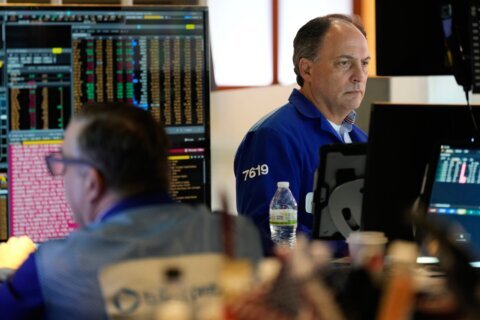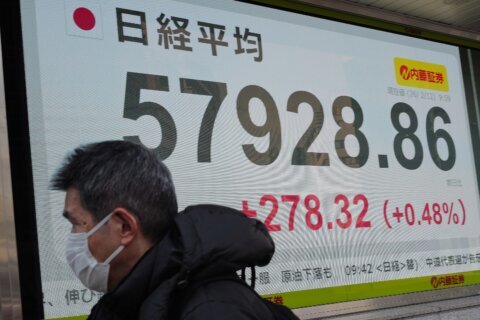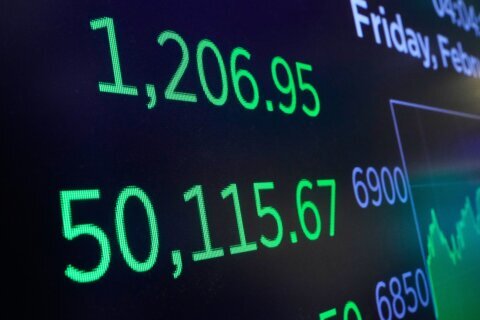The 21-year-old unarmed protester who was shot and critically injured by a police officer in Hong Kong has spoken out for the first time since the incident, describing democracy as a basic human right — and not something people should have to die for.
The shooting of Patrick Chow, which was captured on video and shared widely online, set off a chain of increasingly violent events with clashes erupting across the semi-autonomous Chinese city on November 11. The shocking and bloody scenes were among the worst since the pro-democracy, anti-government demonstrations began almost six months ago.
In a one-on-one interview with CNN Saturday, Chow argued that the government — and not the protesters — must take responsibility for the continued unrest.
“The government is forcing us citizens, telling us peaceful means can’t accomplish what we want,” he said. “That’s why these things have kept escalating. ”
In a press conference after the shooting, police said that a traffic officer was arresting a protester when Chow ran towards him. Footage of the shooting shows the officer grappling with a protester before Chow approaches the scuffle.
In the video, the officer raises his gun, and Chow appears to try to wave or slap the gun away as he nears the officer. The officer then fires at close range, to screams from the surrounding crowd of protesters and passersby.
The officer fired the gun because he believed Chow was trying to snatch his gun, and felt he was facing threats from two directions — Chow and the other protester, said a police commander.
If the gun had been taken, “the consequences would be disastrous,” said another police spokesperson. He added that the case would be under investigation, but that they believed the officer did not have “bad intentions.” The officer has gone on leave, but has not been suspended.
According to Chow, however, the police officer had no reason to fire.
“(The police officer) took out his gun and pointed it at the guy in the white jacket,” Chow said, referring to a second protester at the scene. “And I said, why are you pointing it at him? He’s done nothing, we’ve done nothing.”
Following the shooting, Chow was rushed to the hospital, where he said doctors removed his right kidney and part of his liver. The effects of those procedures were still clearly visible Saturday. Unable to stand up straight, Chow walked with a slow limp, his torso heavily bandaged.
Asked whether democracy is worth dying for, Chow reverted the question. “Democracy and freedom are basic things. But the Hong Kong government has denied it to us,” said Chow. “The Basic Law (Hong Kong’s mini-constitution) said we had the right to vote. So we shouldn’t have to give our lives for this — the government must give us our right.”
Since the shooting, Chow claims he has slept badly. The wounds hurt — but his mental health has also taken a toll. Sometimes at three or four in the morning, he will abruptly awake from nightmares in which he relives the moment of the shooting. The images play out in his mind — the officer raises the gun, points it at him, and fires.
Asked if he would ever forgive the officer, his answer was immediate and emphatic. “No, never forgive,” Chow said. “He took my kidney.”
Chow was arrested for unlawful assembly and attempted robbery of the gun, police told CNN, but he has not yet been formally charged. He is now out on bail, and will report for bail in December. He has been legally advised not to discuss the events that preceded the shooting.
A week of stunning violence
The moment he woke up from surgery, Chow said he wanted to know what was happening with the protests — unaware that while he had been unconscious, they had erupted into new levels of violence, chaos, and extremity.
The shooting happened during the city’s rush hour at around 8 a.m. on November 11. Later in the day, a police officer appeared to drive his motorcycle into a crowd of people, and a man was doused in flammable liquid and set on fire after confronting a group of protesters.
The next day, students and protesters occupied the Chinese University of Hong Kong (CUHK) — which started a week of citywide university occupations, police sieges, mass arrests and bloody battles. The protesters evacuated CUHK after four days, but as of Saturday, a small group still remains inside the Hong Kong Polytechnic University, having occupied it for more than a week with riot police surrounding the outside.
“After the gunshot, after I woke up, I saw the news and (thought), “Whoa, Hong Kong people have become more brave against the Hong Kong government,” Chow told CNN.
He added that that protesters should take advantage of this time and present moment within the movement — before the Hong Kong, or the Chinese government, potentially cracks down further.
“People can be killed by bullets. But beliefs can’t be killed,” he added.
The heightened violence — especially on the part of the protesters, who have thrown petrol bombs and shot police with bows and arrows — has led to divisions in the city. Some former supporters have drifted away; even those who remain committed to the cause have been troubled by the violence.
Police officers and their families have also faced harassment; the officer who shot Chow had his personal information leaked online only hours after the shooting, and his children have received death threats, police told CNN. The officer also stepped down from his role as chairperson of a school’s parent-teacher association after he was identified online, amid calls for his resignation, according to a statement from the school.
In response, Chow echoed a common refrain among the movement — that the Hong Kong government has ignored the people’s demands and the police have committed acts of brutality, forcing protesters to respond with greater force.
Protesters have five major demands: the complete withdrawal of an extradition bill, which is what originally sparked the protests, is the only one to have been met. They are also calling for universal suffrage as well as an investigation into police brutality, a retraction of the characterization of the protests as “riots,” and the release of arrested protesters.
“Police are ignoring human rights. It makes the hate become bigger and bigger,” Chow said, pointing to the rising tensions and hostility across the city. “If the Hong Kong government accepts our five demands, or at least the independent inquiry, the hate (in Hong Kong) will decrease.”
But in a press conference last week, Hong Kong’s Chief Executive Carrie Lam said exactly the opposite — that government concessions would only beget more violence.
“There is no question that escalating violence could get what the rioters want. Not from the government. Not from the society at large,” she said. “Because violence will only lead to more violence and once we satisfy the rioters because they have resorted to violence, I can assure you that more violence will follow.”
The protesters’ actions had “surpassed the five demands and are the enemy of the people,” she added.
A call to vote
Chow’s comments came a day before Hong Kong took to the polls in local district council elections, in what many residents see as a referendum on the protests. Voting began early morning Sunday and is ongoing.
The government has regularly claimed that protest support is waning, and that a silent majority of Hong Kongers are sick and tired of the violence. Protesters offer a different take — that the city is with them, no matter the cost, and the recent lack of mass public rallies is only due to increasing restrictions on public assembly.
The district councils are the only official bodies in the city elected by universal suffrage; one person, one vote. The election, then, is an objective test of how people in the city actually feel about the protests and the government.
Chow urged protesters to exercise their democracy peacefully on Sunday, emphasizing that “every vote counts.”
“If we young people don’t come out and confront this government, we will only be repressed even more,” he said. “If we don’t speak out now, tomorrow we may not have the chance to have a voice.”







